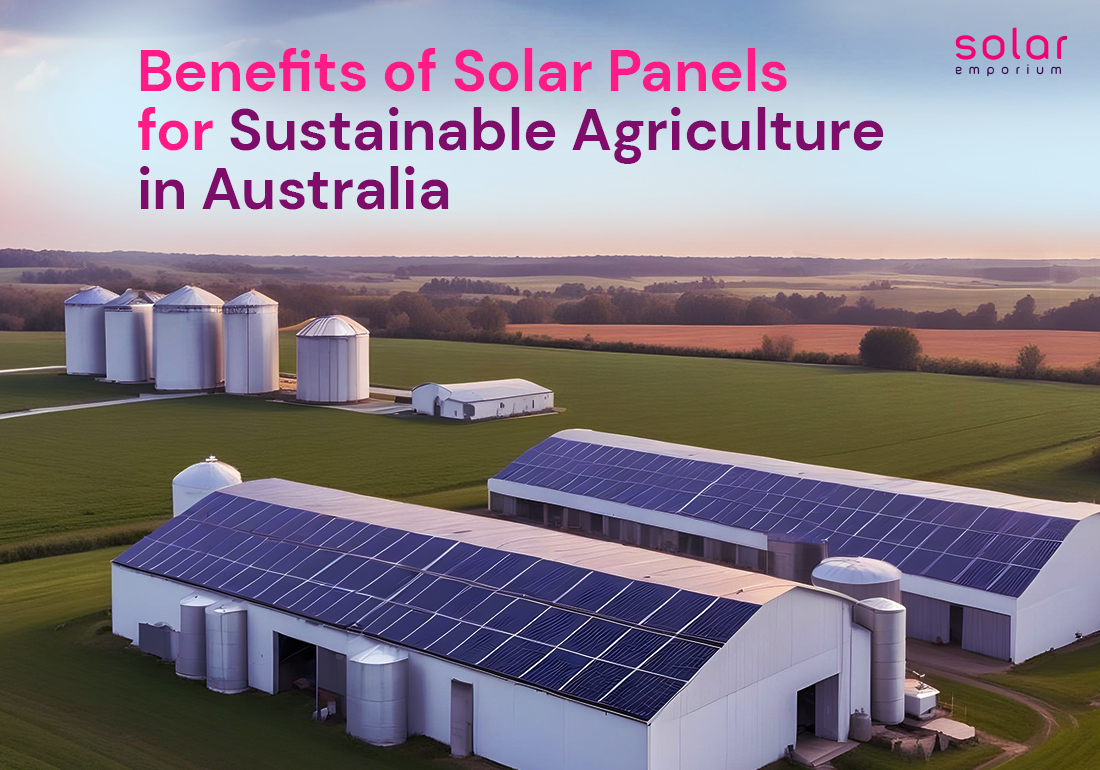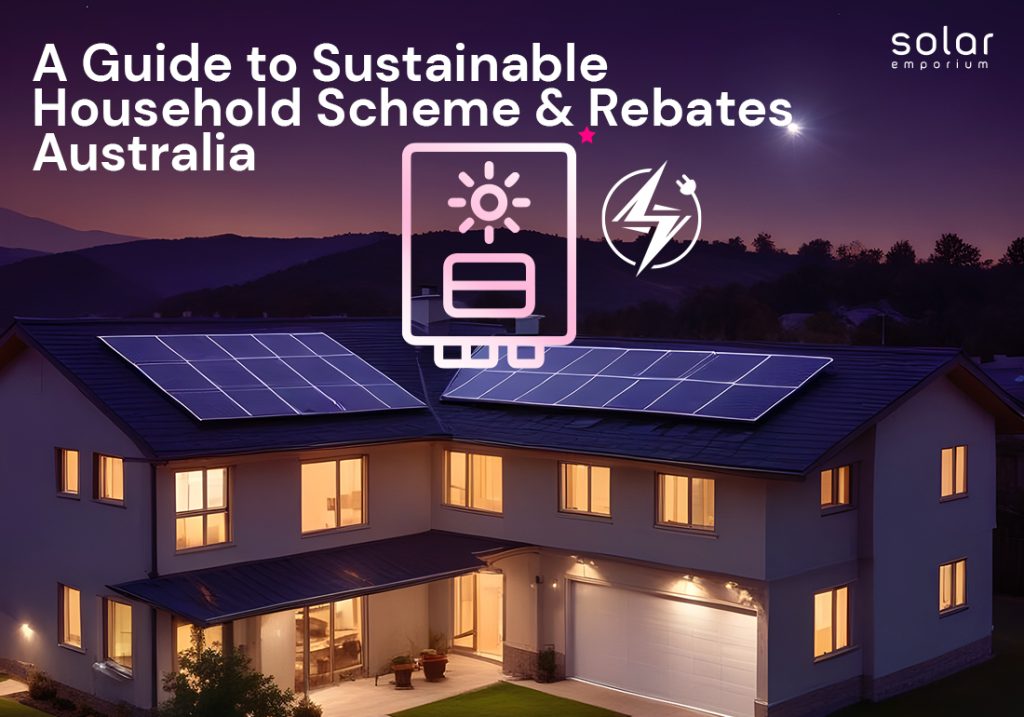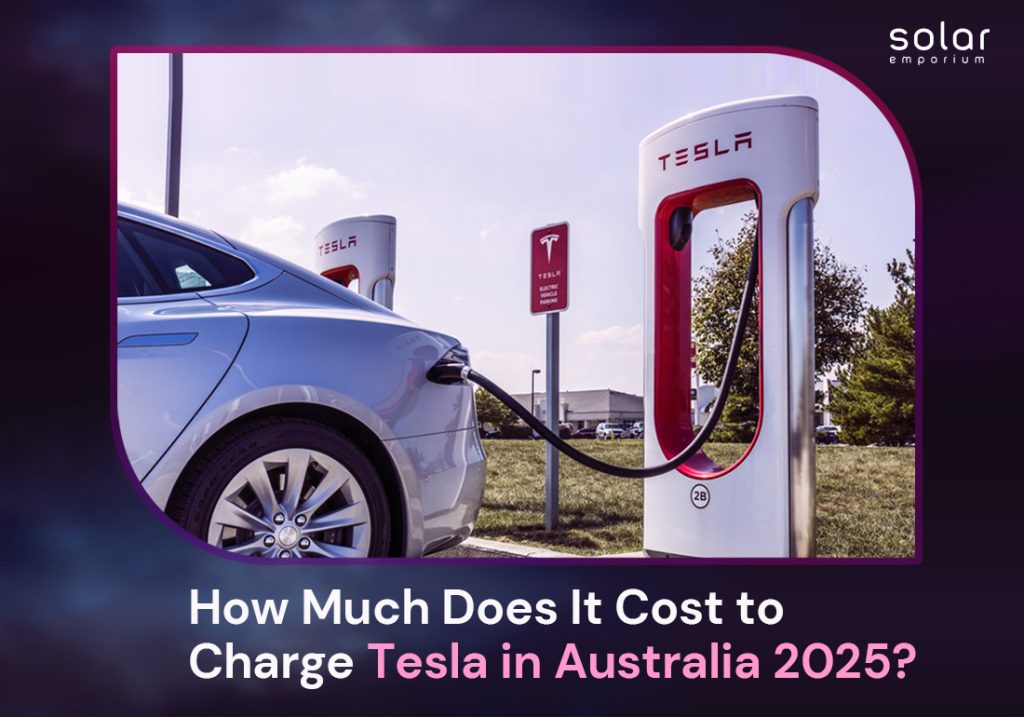Living in 2024, undoubtedly the innovative fusion of agriculture and solar energy is a transformative blessing for our planet.
By integrating tradition with technology farmers nowadays harness the power of the sun to grow their crops while at the same time generating clean energy. Imagine! They’re not just cultivating food only; they’re cultivating a sustainable future together.
But do you even realize the benefits of solar panels for sustainable agriculture in Australia? If not, it is time to embrace this revolutionary synergy and utilize its potential to create a brighter, greener tomorrow.
So, to know more details on solar panels and their numerous benefits in agricultural fields, tag along!
Overview of Sustainable Agriculture
Solar Panel in Transforming Agriculture
Have you ever considered how the introduction of solar panels in farming can illuminate and shape the future of sustainable agriculture?
Undoubtedly, it’s glowing hours for solar power in Australia. The fusion of solar panels into agriculture blessed everyone with unprecedented possibilities like conserving the environment, energy saving, cost saving, and so on.
A survey says, that in Australia’s Victoria’s Goulburn Valley, some researchers are running an agrivoltaics project worth $500,000 where they are growing fruits under solar panels. According to them, the project has gained interest from the local farmers who saw promising opportunities for using solar in agriculture.
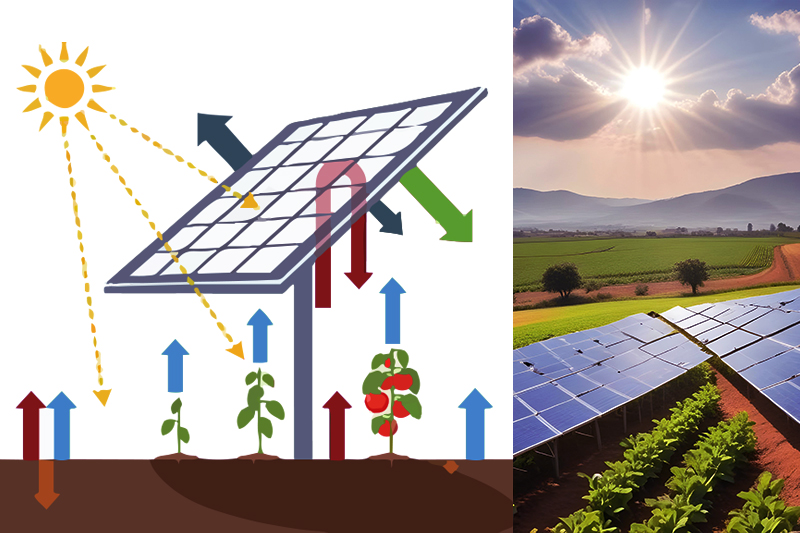
Solar Panel Installation Methods on Agricultural Fields
Solar is becoming a more demanding, sustainable source of energy throughout the globe. However, the main critical part of obtaining the maximum energy lies in their mounting styles and installation methods on agricultural fields.
Proper mounting of solar panels not only maximizes the production of energy but also performs a notable role in maintaining the durability of the system. It also increases property value as it’s considered an investment in the long run.
Here, we will look at the most popular solar mounting structure types along with their advantages:
- Roof-Mounted Solar Panels
In this installation, the panels are usually placed on the roofs of agricultural infrastructures or barns. Therefore, it doesn’t require any kind of additional land.
Roof-mounted solar panels are easy to clean and have effortless maintenance, making them a popular choice in agricultural fields and residential areas.
- Ground-Mounted Solar Panels
Ground-mounted solar panels are constructed in barren land and wide-open spaces. This mounting style offers flexibility that allows you to tilt or adjust the panels according to the sun exposure throughout the daytime. It is very efficient and can be expanded easily. So, if someone wants to upgrade their system on a larger scale this could be their ideal option.
However, there are three methods to install the panels which include:
Fixed Tilt: In a fixed tilt solar mounted system, the panels are designed to keep at a specific angle in a fixed frame throughout the year. This maximizes solar exposure and is mostly used in larger agricultural land.
Adjustable Tilt: This mounting style provides the ability to adjust the angle of the panels. This is one of the best solutions that allows seasonal adjustment and works efficiently in regions where the angle of sun exposure varies from time to time.
Pole Mounts: Pole mounts are structures where solar modules are placed way over the ground with the help of secured concrete poles. Here, the poles can be elevated and adjusted which reduces the accumulation of dirty particles and protects the panels from potential damage caused by farmers during agricultural activities. Moreover, this design requires very little ground space. So, if space is your limitation, try Pole Mounts solar installation for maximum efficiency.
- Agrivoltaics
Agrivoltaics is an eco-friendly approach that enables the use of land by integrating solar power generation with agricultural activities. Solar panels in agrivoltaics systems are installed on elevated structures above crops or grazing areas. While generating solar power this system allows sunlight to come in contact with the plants. Agrivoltaics optimizes land use as people can use the land for both agricultural activities and generating solar energy.
In farming, agrivoltaics help to maintain the moisture of the soil and sheds the crops, saving it from heat stress.
- Solar Carports and Solar Shelters
Solar Carports are suitable for farm equipment storage areas or large parking lots on agricultural properties. Like agrivoltaics, it also has a dual purpose. Due to its placement in the parking areas, it sheds the vehicles besides producing solar energy. Meanwhile, in the case of installation on farm buildings, it serves as a shelter to reduce the destruction of farm equipment and protect it from the weather.
- Floating Solar Panels for Solar Water Pumping Systems
The floating solar panel is an outstanding method that allows the solar panel system to be mounted on water bodies namely, lakes, ponds, or water reservoirs. Among all the types, this kind has the best efficiency as water cools the panels. It also reduces the water evaporation rate and the growth of algae or other water plants.
- Vertical Mount
Like its name, the panel in the vertical mount system is aligned vertically side by side. It is a useful technique for limited horizontal space and is best for capturing sunlight even from low angles.
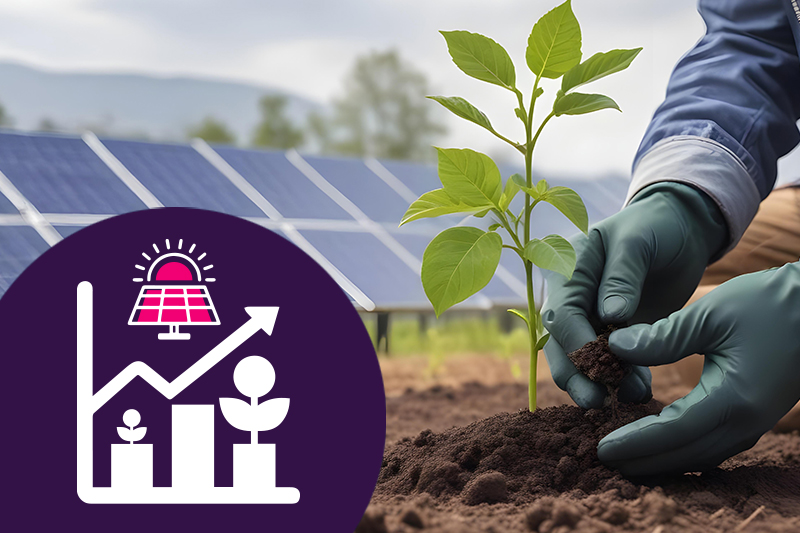
How Solar Power Benefits to Cultivate a Greener Future
Whenever the talk is about sustainable agriculture in Australia, solar power is considered as one of the viable solutions to the farmers. This country is known for its vast landscapes and is blessed with abundant sunlight which helps it to flourish in the agricultural industry.
While the traditional form of agriculture depends heavily on fossil fuels, releasing greenhouse gases into the atmosphere, the transition to solar energy helps farmers to operate more sustainably leaving a positive impact on society.
So, let’s delve in and explore the numerous benefits of intertwining solar and agriculture which opens a promising future for sustainable agriculture:
Energy efficiency of using solar in agricultural operations
Reduce Energy Costs:
- The use of solar panels to generate electricity on farms can lower the electricity bills of farmers. Some regions also offer net metering programs where excess generated solar power can be sold back to the grid. Thus, it provides additional income.
- Solar panels typically have a long lifespan (20-30 years) with low maintenance costs, ensuring long-term savings.
- From lighting and heating to charging electric equipment and running irrigation systems, solar panels offer multiple facilities.
- Solar energy reduces grid dependence, supporting sustainable practices, and ensuring greater energy independence with security.
Environmental benefits of merging solar energy with agriculture
Reducing Greenhouse Gas Emissions
- Solar energy reduces the dependency on fossil fuels required to power the farms. By generating clean, renewable sources of energy, solar panel farms can significantly decrease greenhouse gas emissions.
- Solar panels contribute to improved air quality as the production of electricity using solar does not produce air pollutants such as sulfur dioxide, nitrogen oxides, or other hazardous gases.
Solar Panels for agriculture enhance land use efficiency
- As we have mentioned before the term agrivoltaics, combining solar panels with crop production allows for the dual use of agricultural land.
- Farms can maximize the land’s utility by producing both food and renewable energy on the same piece of land, discarding the need for any additional space.
Solar Panels in agriculture promotes biodiversity
- Installing Solar panels creates shades in certain regions. This system supports various plant and animal species to survive extreme weather conditions like heat waves, droughts, etc.
- As solar panels act as a shield to prevent the direct heat of the sun and heavy rainfall from reaching the earth’s surface, they help to restore the moisture in the soil. It also reduces soil erosion and improves soil quality.
Solar panels in agriculture improve water management
- Irrigation systems conducted by using solar panels can optimize water use. It helps to conserve water resources and reduce waste.
- Solar energy systems do not require water during electricity generation, so it lowers water stress on local resources.
Farming using solar energy enhances crop yields
- Solar panels can create a more stable microclimate that may improve crop yields and reduce heat stress on plants due to the sheds.
- In organic farming, the incorporation of solar reduces the need for using harmful chemicals, and insecticides. It helps to enable better water management and soil conservation and grow highly nutritious foods.
Economic Advantages of Using Solar Panels in Agriculture
- Solar panels can generate electricity to perform a wide range of activities on the farm. By using advanced technology, smart water management solar panel systems, and new equipment farmers can grow crops more efficiently with reduced energy costs.
- According to Australian statistics, the cost of electricity has skyrocketed to 60% in the past decade. Undoubtedly the cost can be a burden for farmers. Therefore, solar is the ultimate savior for them to mitigate the energy problem.
8 Proven Strategic Insights for Effective Solar Installations in Agriculture
Before transitioning toward solar-powered agricultural farms there are a lot of things that need consideration. Besides exquisite decision-making, it also requires careful planning and proper installation of solar panels to maximize energy production.
So let’s hover over some essential tips that help to make solar panels effective in agriculture:
- Whether on the ground, above crops, or on buildings, first make sure that there is enough space for the preferred mounting style.
- Select the style that allows easy maintenance and access to the panels.
- Perform proper energy audits to find the areas that can be improved and know the pattern of energy consumption rates.
- Determining the perfect installation method for solar panels according to the specific conditions or requirements is so important.
- Try to research available government rebates and incentives and explore your financial eligibility to reduce the solar upfront cost.
- Consider how the installation might impact crop growth or agricultural operations.
- Selecting a mounting style that can withstand local weather conditions, such as high winds or heavy snowfall is a must.
- Interacting and sharing experiences with other farmers, local communities and stakeholders can be an excellent way to build a strong network and gather valuable knowledge on sustainable farming.
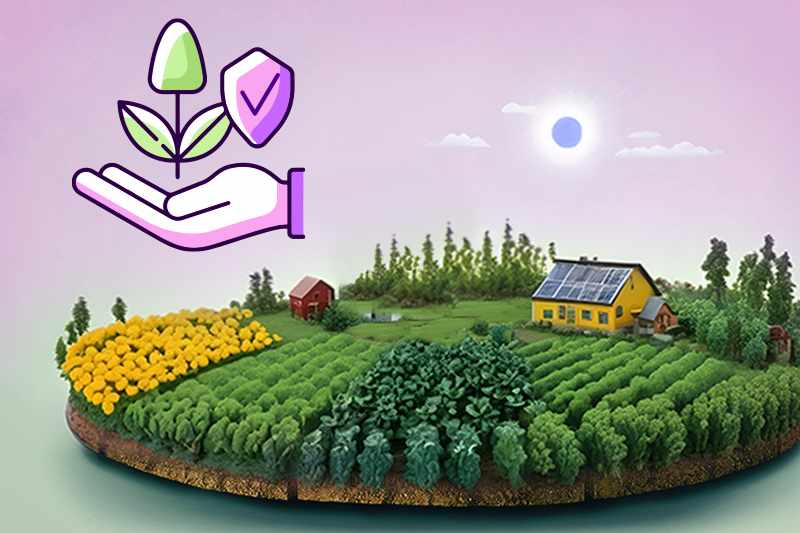
Future Scope of Leveraging Solar Energy for Agricultural Success
As you already know all the benefits of solar panels in agriculture, now you might be wondering, what future solar power holds in the agricultural Industry.
Well, as the technology and agricultural industry both are evolving rapidly, the future of solar energy in agriculture looks bright and promising.
Various sectors need proper administration to achieve the goals of a sustainable future with renewable sources. These include the increase of agrivoltaics, making solar systems more powerful, affordable, and efficient.
Moreover, the upgrade in storage solutions of energy, such as affordable and efficient solar batteries, will not only reduce dependency on the Australian national grid. It also enhances reliability by providing farmers with a consistent energy supply during power failure or extreme weather conditions.
Takeaway Thoughts
As the whole world now is moving towards a greener, healthier, and cleaner future, the benefits of installing solar panels for agriculture stand out as a transformative solution that delivers environmental, economic, and social benefits.
This innovative fusion creates wide-open opportunities for the farmers while making their lives a bit easier, fostering a more sustainable and successful agricultural future.
Thinking about stepping into the world of solar? Solar Emporium is going to be your ultimate solution! Here, we offer various solar products and services ensuring your energy needs to create a sustainable world together.
